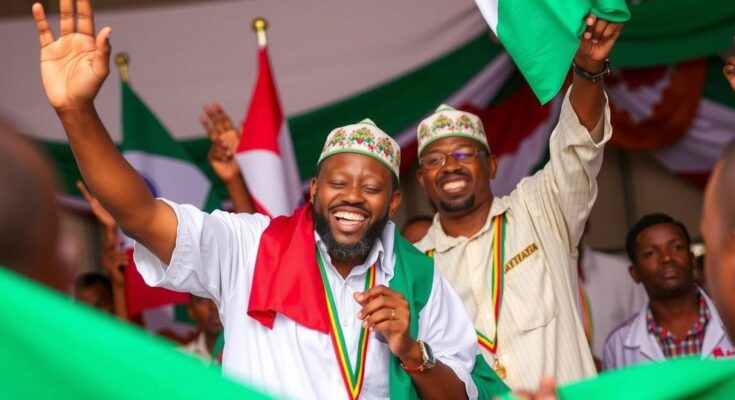Chad’s ruling Patriotic Salvation Movement has won 124 of 188 parliamentary seats in elections marked by opposition boycott and low turnout. Critics labeled the election a “charade,” raising concerns of legitimacy, reflecting ongoing tensions in the transition to democracy under President Mahamat Idriss Deby following a military takeover. Concurrently, Chad is navigating significant security and foreign relations challenges.
Chad’s ruling party has emerged triumphant in the recent parliamentary elections, securing a significant majority, which has sparked controversy due to widespread opposition boycott. The Patriotic Salvation Movement, led by President Mahamat Idriss Deby, claimed 124 out of 188 National Assembly seats, as announced by Ahmed Bartchiret, the head of the electoral commission. This event marked Chad’s first parliamentary elections in over a decade and was characterized by a low voter turnout of 51.56 percent, raising questions about the legitimacy of the electoral process.
Deby’s party has proclaimed these elections as a crucial stage in the country’s transition to democracy following the military takeover in 2021, which occurred after the death of longtime leader Idriss Deby Itno. The elections, which included municipal and regional voting, took place amidst security challenges including insurgent threats from Boko Haram and a shift in military relations with former colonial power France. The absence of significant opposition participation, including the prominent Transformers party, has led some critics to label the elections a “charade,” echoing concerns from the previous presidential elections about the credibility of the electoral process.
The implications of the election extend beyond domestic politics, as Chad seeks to redefine its governance structure amid regional instability. The recent severing of military ties with France reflects a broader trend among Sahel countries, which, in the wake of military coups, are distancing themselves from Western powers while exploring alliances with Russia. Furthermore, recent security incidents, such as an foiled attack on the presidency, highlight the fragile state of governance in Chad and the heightened need for stability.
The recent parliamentary elections in Chad have unfolded within a politically charged atmosphere, emphasizing the challenges the country faces regarding democratic governance and security. Following the military ascension of President Mahamat Idriss Deby after the death of his father, long-time ruler Idriss Deby Itno, there has been an ongoing struggle for political legitimacy. This election represents Chad’s initial foray into parliamentary voting in over ten years, marked by significant opposition abstention that signals distrust in the electoral process and governance structures. The added dimension of security threats from groups like Boko Haram, along with transitions in foreign military partnerships, has intensified the stakes of these elections.
In conclusion, the parliamentary elections in Chad, which saw the ruling Patriotic Salvation Movement secure a commanding majority, have reignited discussions about the country’s path toward democracy amidst widespread opposition boycott and low voter turnout. The aftermath of these elections not only reflects the political landscape post-military takeover but also underlines challenges related to security and foreign relations. As Chad contends with internal and external pressures, the implications of these elections will be crucial in shaping its political future.
Original Source: www.aljazeera.com




